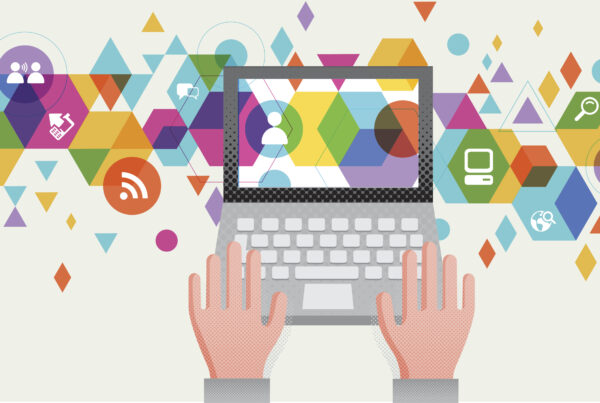
Nearly every industry was forced to make rapid changes due to the Covid-19 pandemic, and the biopharma research and development arena is no exception. Almost overnight, the way clinical trials were conducted changed — and it is unlikely the industry will ever go back, said Annie Harris, director of technology enablement at global life sciences company Covance.
Harris, along with Dr. Aswin Chandrakantan, head of life sciences and CMO of data insights company Komodo Health, discussed how advancements in technology have impacted biopharma R&D at a virtual panel during the MedCity IINVEST Precision Medicine conference on Thursday. John Reites, CEO of decentralized clinical trial platform provider THREAD Research, moderated the panel discussion, which was sponsored by Komodo Health.

With the Rise of AI, What IP Disputes in Healthcare Are Likely to Emerge?
Munck Wilson Mandala Partner Greg Howison shared his perspective on some of the legal ramifications around AI, IP, connected devices and the data they generate, in response to emailed questions.
Telehealth, and its rapid adoption, has been the biggest game-changer in clinical trial operations, Harris said.
Now, participants can just dial in and connect with their physician instead of traveling — at times great distances — to go into a clinic. Not only that but with pharmacies delivering straight to people’s homes, getting the experimental medications they need has been a great deal easier for patients.
Harris believes these changes will boost both participation and compliance.
“[Connecting with] the older generations, the poorer areas — [digital options are] going to help so much,” she said. “Because people will have the ability to easily participate. People are used to using the phone, they are used to using Zoom or Facetime. It has already revolutionized our industry and it’s just going to continue. We are not going to turn back.”
Reites echoed this sentiment, adding that the technology itself is not difficult to develop, rather the ability to move valid assessments from the clinic to the home and provide a hybrid opportunity for sites to conduct decentralized trials — that “is where the magic is.”
The shift to digital in the consumer world is impacting expectations in the clinical trial and R&D world, he said.
But telehealth is not the only technology shift impacting biopharma R&D. There are now an array of solutions that enable more comprehensive data collection and analyses, which is further transforming clinical trial operations, said Komodo Health’s Chandrakantan, during the discussion.
One of the key uses of clinical trial data? The ability to develop and use synthetic or external control arms, which repurpose information from historical clinical trials or real-world data to accurately match patients, during clinical trials, he said. This approach provides several benefits, including allowing all participants to get the experimental drug being studied.
“There is no patient that has cancer that wants to be in the control arm of the trial,” Chandrakantan said. “I’m not arguing that everything should be retrospective, and we shouldn’t have prospective studies. But you need to be able to tap into the journeys of the past to statistically power the study appropriately.”
In addition, using external or synthetic control arms help researchers increase speed, decrease cost — because you only need half the participants — and optimize throughput, he said.
If you couple that with data solutions that can help investigators quickly identify patients that have rarer diseases, “you are going to assign more dollars [to] areas that have a higher disease burden with more inclusive populations — and it’s a win for patients, it’s a win for the industry in terms of efficiency and it’s a win for us as a society…and there doesn’t need to necessarily be the traditional way of working.”
Photo: exdez, Getty Images














